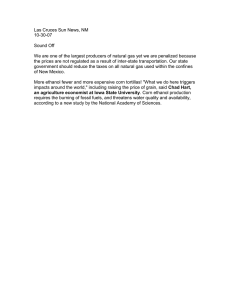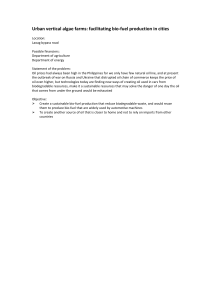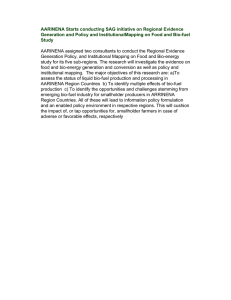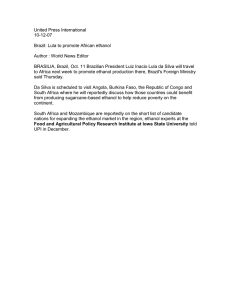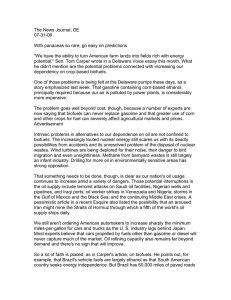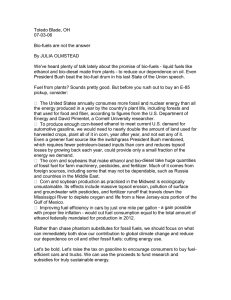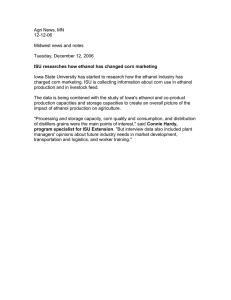Bio-fuels
advertisement
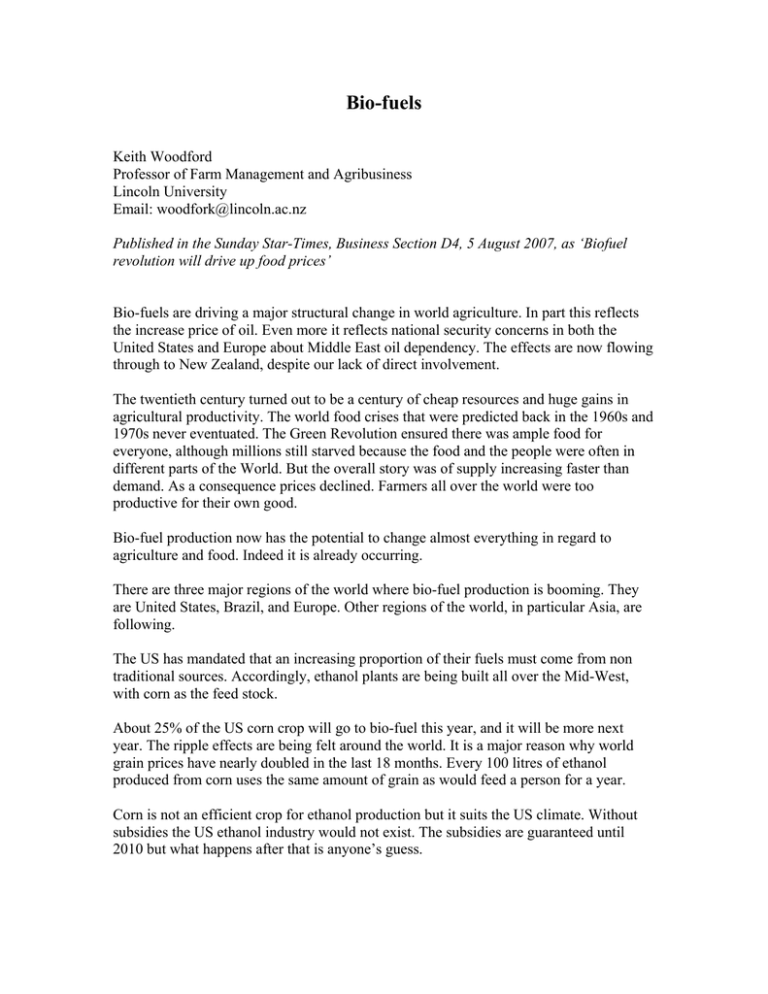
Bio-fuels Keith Woodford Professor of Farm Management and Agribusiness Lincoln University Email: woodfork@lincoln.ac.nz Published in the Sunday Star-Times, Business Section D4, 5 August 2007, as ‘Biofuel revolution will drive up food prices’ Bio-fuels are driving a major structural change in world agriculture. In part this reflects the increase price of oil. Even more it reflects national security concerns in both the United States and Europe about Middle East oil dependency. The effects are now flowing through to New Zealand, despite our lack of direct involvement. The twentieth century turned out to be a century of cheap resources and huge gains in agricultural productivity. The world food crises that were predicted back in the 1960s and 1970s never eventuated. The Green Revolution ensured there was ample food for everyone, although millions still starved because the food and the people were often in different parts of the World. But the overall story was of supply increasing faster than demand. As a consequence prices declined. Farmers all over the world were too productive for their own good. Bio-fuel production now has the potential to change almost everything in regard to agriculture and food. Indeed it is already occurring. There are three major regions of the world where bio-fuel production is booming. They are United States, Brazil, and Europe. Other regions of the world, in particular Asia, are following. The US has mandated that an increasing proportion of their fuels must come from non traditional sources. Accordingly, ethanol plants are being built all over the Mid-West, with corn as the feed stock. About 25% of the US corn crop will go to bio-fuel this year, and it will be more next year. The ripple effects are being felt around the world. It is a major reason why world grain prices have nearly doubled in the last 18 months. Every 100 litres of ethanol produced from corn uses the same amount of grain as would feed a person for a year. Corn is not an efficient crop for ethanol production but it suits the US climate. Without subsidies the US ethanol industry would not exist. The subsidies are guaranteed until 2010 but what happens after that is anyone’s guess. In Brazil the bio-fuel industry is based on sugar cane. There are huge areas of natural grasslands in Central and Southern Brazil that are being converted to sugar cane production. This industry has been developing for more than 20 years but is now reaching new heights. Even the planes fly on bio-fuel. When most people think of Brazil they think of the Amazon and non-sustainable farming. That is a totally different part of Brazil. The Brazilian agricultural and bio-fuel revolution is occurring in the Parana River Catchment, which is Brazil’s second major river system. Essentially it is sustainable agriculture. The modern mills can divert the harvested cane to either ethanol or sugar depending on market prices, and the by-products are fed to cattle. Producing ethanol from cane sugar in Brazil does make economic sense and it occurs without subsidies. But it is shifting land away from cattle and grain production. In Europe the focus is on bio-diesel rather than ethanol. This is produced from oil crops such as rape. This is not economic at current oil prices and the industry is dependent on regulations and subsidies. Nevertheless, the industry is expected to grow rapidly. A lot more land will need to be used to produce the rape and other oil seed crops. Here in New Zealand it makes no sense for us to develop a bio-fuel industry based on any of these crops. Our competitive advantage, based largely on our maritime climate, lies in dairying, beef, sheep, kiwifruit and forestry. As other parts of the world shift resources to bio-fuels and away from food production, the prices for our products, in particular dairy and beef, can be expected to increase. However, new technologies are being developed rapidly, and it may not be too long before it is possible to convert both trees and grass into bio-fuels, and to do so economically. Indeed the long term future of bio-fuels is much more likely to lie with trees, and even more so algae, than it is with crops such as corn. The effects of bio-fuels will go far beyond agriculture. They will extend to the supermarket. For many years food has been a declining share of the consumer spend. That looks likely to change. Anything that makes use of grain is going to become more expensive, including chicken, pork and beef. Some of those effects are still 6-12 months away, but they are coming.
